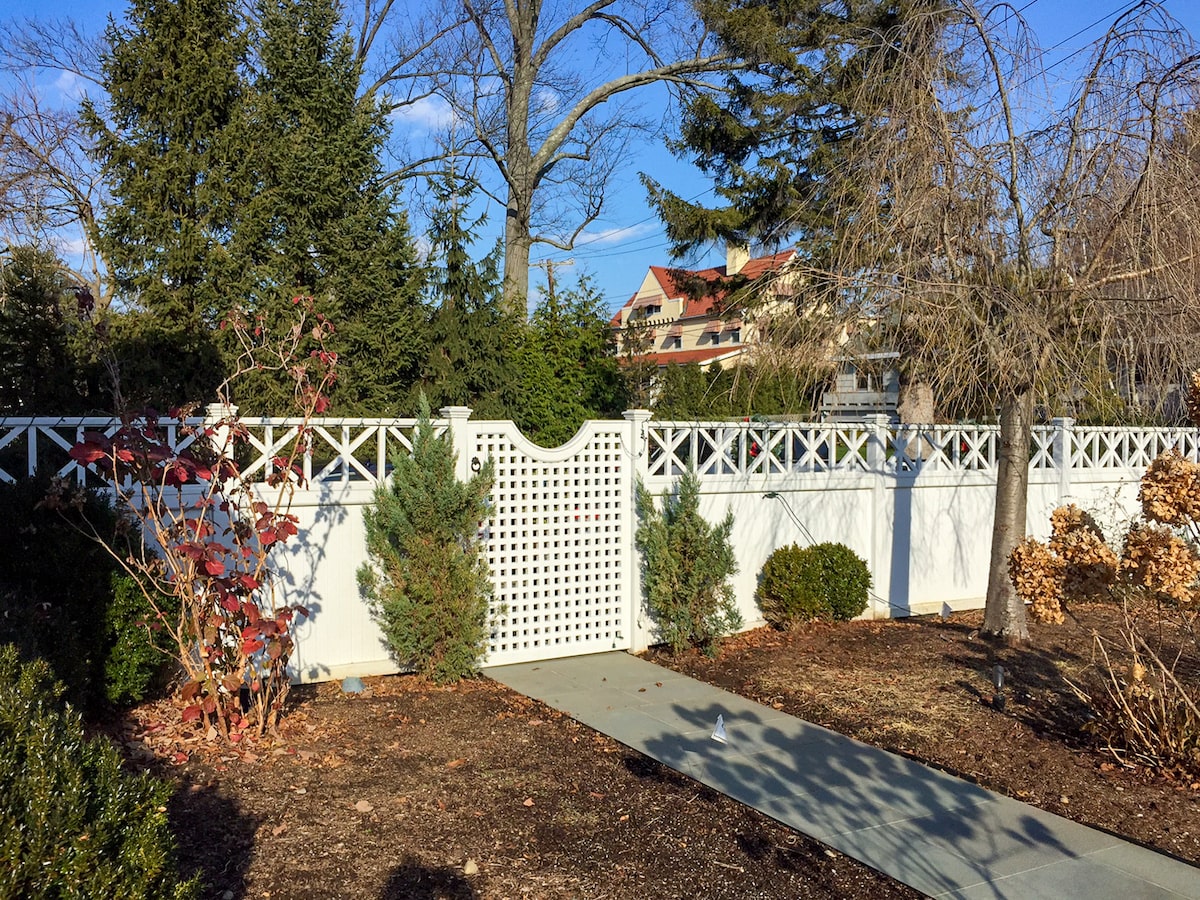All Categories
Featured

Picking the ideal fencing for both privacy and sound reduction is a vital factor to consider for several house owners, especially if you stay in an active location or near high-traffic roadways. The materials you select can make a substantial difference in how well the fence serves its function. Allow's check out some of the ideal secure fencing materials for boosting personal privacy and blocking out noise.
- Wood Secure fencing. Wood fencings are a traditional selection for personal privacy and noise reduction. The natural density of wood allows it to absorb audio effectively, making it a solid option for dampening external noises. A strong wood fence, specifically one with closely spaced slats or no gaps, provides significant soundproofing. Wood likewise gives a traditional, rustic visual that mixes well with most landscapes.

Ideal for: Property owners looking for an all-natural, ageless appearance and reliable sound barrier. Upkeep: Timber fencings need normal maintenance to avoid concerns like bending, rot, or splintering. Regular discoloration or sealing is important to safeguard the wood from the components. Sound Decrease: A solid, no-gap timber fence can block a considerable amount of noise, especially from neighboring website traffic or building. 2. Plastic Secure fencing. Vinyl fencings are a modern choice to conventional timber and provide the benefit of low upkeep. Vinyl fences can be set up as strong panels that are excellent for both personal privacy and sound reduction. While vinyl does not absorb sound along with wood, it still offers an effective sound barrier, specifically when set up with tight-fitting panels that avoid gaps.
Ideal for: Homeowners looking for an economical, low-maintenance fence option with a contemporary appearance. Upkeep: Vinyl fencings need minimal maintenance. Merely clean them periodically to remove dirt or spots, and they'll stay looking fresh for many years. Sound Reduction: Strong vinyl fences can reduce noise, though not as efficiently as wood. For much better noise-blocking, select thicker, high-density vinyl panels. 3. Compound Fencing. Compound fences, made from a mix of timber fibers and plastic, supply the very best of both worlds: the all-natural appearance of wood integrated with the durability and low maintenance of plastic. These fencings are dense, which assists to soak up audio while also supplying a strong personal privacy barrier. Composite fencings can additionally be built with limited panels to additionally minimize noise.
Finest for: Homeowners who desire the look of timber with less maintenance and enhanced durability. Upkeep: Composite fences are really low-maintenance and just require periodic cleansing to remove particles. Noise Decrease: Compound fences are quite efficient at sound decrease due to their density. They perform similarly to timber fences and are a superb choice for those trying to find both privacy and soundproofing. 4. Stone or Block Walls. Rock or block fencings give remarkable privacy and sound decrease. The strong, heavy building and construction of rock or brick walls makes them extremely effective at blocking sound, specifically when they are constructed with no gaps.
Ideal for: Homeowners who focus on privacy, noise, and protection reduction over aesthetics or expense. Upkeep: Rock or brick walls are durable and call for minimal maintenance. Nonetheless, it's crucial to examine for any splits or damages with time. Sound Decrease: Rock or block offers the best sound decrease among all materials. They are highly efficient at blocking out both high and low-frequency noise. 5. Metal Fence with Soundproofing. While metal fencings, such as aluminum or steel, are commonly not as effective for noise reduction on their own, they can be enhanced with soundproofing materials. Including acoustic panels or soundproofing foam can turn a metal fence into an outstanding audio obstacle. These fencings use a streamlined, modern-day look, and the added soundproofing elements can give substantial sound decrease.
Best for: Property owners that choose a modern-day visual and want to buy soundproofing enhancements. Upkeep: Metal fences need very little upkeep but may need corrosion avoidance in certain environments. Sound Decrease: When boosted with soundproofing products, metal fences can be reliable at obstructing sound. Without these enhancements, nonetheless, metal fences have a tendency to be much less reliable at sound reduction compared to denser products like wood or block. 6. Plant or Hedge Fence. For those that favor a natural option, thick hedges or bushes can serve as a noise-dampening fencing. While not a conventional fencing material, thick plants can take in audio and create an all-natural obstacle against sound. While they might not block sound as effectively as a solid wall surface, they can help reduce ambient sound and include a layer of privacy.
Ideal for: Home owners seeking an extra eco-friendly and visually pleasing alternative. Maintenance: Plant fencings need normal trimming and like maintain them healthy and dense. Sound Decrease: While not as efficient as strong fencings, thick plants can help in reducing sound by soaking up sound, specifically when expanded largely. Conclusion. When selecting a fence for privacy and noise reduction, products like wood, vinyl, composite, and rock are among the best choices. For the highest level of privacy and noise block, rock or decrease wall surfaces are the most efficient choice.
Latest Posts
Secure Your Financial Investment with Specialist Gutter Installment
Published May 26, 25
1 min read
Learn How to Reduce Expenses on Car Maintenance with Montclare Auto Repair’s Limited-Time Deals
Published May 23, 25
1 min read
Identifying When Your Car Needs Skilled Vehicle Service at Montclare Auto Repair
Published May 23, 25
1 min read
More
Latest Posts
Secure Your Financial Investment with Specialist Gutter Installment
Published May 26, 25
1 min read
Learn How to Reduce Expenses on Car Maintenance with Montclare Auto Repair’s Limited-Time Deals
Published May 23, 25
1 min read
Identifying When Your Car Needs Skilled Vehicle Service at Montclare Auto Repair
Published May 23, 25
1 min read